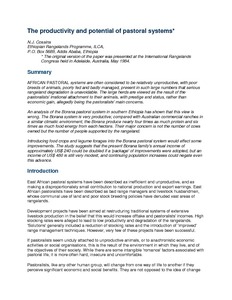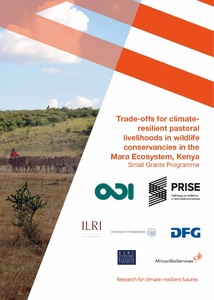The potential benefits and challenges of agricultural animal biotechnology to pastoralists
The livelihoods of pastoralists revolve around their indigenous livestock. Combining high
production with disease resistance using genetic engineering is a biotechnological intervention
hailed by some as a promising avenue to mitigate food insecurity and poverty. Considerable
human and financial resources have already been devoted to exploring this option. However, the
challenges are enormous. It is unlikely that such livestock would survive in the harsh ecosystems








